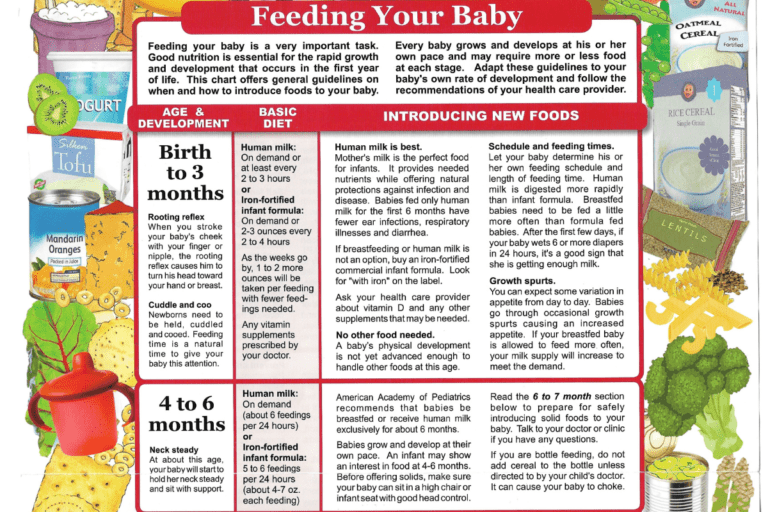Is My Baby Waking From Hunger?
If you’ve ever Googled “When will my baby sleep through the night?” or “How do I drop night feedings?” then this blog post is for you. Because let’s be honest, you would totally be okay with dropping night feedings if you knew your baby wasn’t waking from hunger. So how do you know if your baby is waking from hunger?
I want to start off by saying that there’s no right or wrong way to handle night feedings if it’s working for you. If your baby wakes up multiple times to nurse and you’re happy to continue feeding through the night, great. No need to make any changes if it’s working for you.
There’s no across the board recommendation of “your baby should drop night feeds by X months”, more so a general guideline. But, if your baby was only waking once to eat or maybe even sleeping through the night and now, they’re waking up multiple times that should be a red flag and possibly a sleep regression.
If your baby was previously only eating once at night or sleeping through the night, I don’t recommend reverting back to multiple feedings throughout the night. Even if your baby is going through a growth spurt the focus should be on full feedings during the day versus adding back in an additional night feeding.
There are of course exceptions to this rule depending on the weight and health of your baby and doctor’s recommendations. Sometimes when babies get sick, they need additional night feedings to stay hydrated. Your baby’s health and safety are the most important thing.
How Old is Your Baby?
Babies under six months of age generally still need at least one night feeding. Their tummies are still small and they’re digesting milk quickly so they’ll most likely require one feeding overnight.
Now this is not the case for all babies. Some babies sleep through the night early on. I’ve seen babies as early as eight weeks sleep through the night and babies as old as eighteen months still waking for a feeding.
It’s so easy to compare your baby to your friend or your sister’s baby and think, “What am I doing wrong?”. “Why isn’t my baby sleeping through the night?” That’s why it’s crucial to understand if your baby is truly waking up from hunger or if they just can’t get back to sleep (which is the case for that eighteen-month-old I mentioned).

How Much Does Your Baby Eat During the Day?
Above is a chart outlining the feeding guidelines for babies from birth to six months of age. From birth to three months the recommendation is to feed on demand. There is no total amount of ounces recommended, just that you follow your baby’s cues.
The guidance is to feed your baby on demand but at least every two-three hours. Your baby should naturally start to take more ounces in at each feeding as their tummy grows which helps them go longer between feedings and eventually drop that night feeding.
Between four to six months of age your baby should be getting four to six feedings in a twenty-four-hour period (including night feedings). The guideline is 24-32 oz. of breastmilk or formula. If your baby isn’t getting enough milk with feedings during the day, they will wake up in the night to get those additional calories they need.
So what can you do to increase daytime feedings? Follow eat, play, sleep so your baby is eating after sleep. They will be more awake and take a full feeding then if you are feeding to sleep. Secondly, I sometimes recommend adding in a smaller top up bottle or nursing session in the awake window to help increase the number of ounces of milk your baby is getting during the day.
Will Solids Help My Baby Sleep Through the Night?
In my experience, introducing solids does not have a direct correlation to how well your baby is sleeping nor does it equal sleeping through the night if they weren’t previously. In fact, you have to be aware of when you introduce solids to ensure that your baby is still taking the recommended amount of formula or breastmilk. Breastmilk and/or formula is your baby’s main source of nutrition for the first 12 months of life.
According to Kelly Mom, there is no evidence that introducing solids will help. “Some babies will sleep worse, due to reactions to the formula or solids (tummy ache, etc. are not uncommon), particularly if baby is younger than around 6 months. Three studies have indicated that adding solids or formula to the diet does not cause babies to sleep longer. These studies found no difference in the sleep patterns of babies who received solids before bedtime when compared to babies who were not given solids.”

What Do Current Night Feedings Look Like?
Does your baby eat to sleep during a night feeding? Maybe it’s an hour after bedtime, maybe it’s three to four hours after bedtime, but how well is your baby eating during this night feeding? Are they nursing for a few minutes (with their eyes closed) then falling asleep? Is your baby sucking down the bottle quickly and staying awake the whole time?
If your baby is falling asleep or getting drowsy during the feeding it’s possible that your baby is just using this feeding for comfort and to help them back to sleep. When you are nursing or feeding them a bottle, listen to your baby. Can you hear them actively swallowing or are they just suckling? Is your baby finishing a bottle or just taking an ounce or two and then passing out?
If you want your baby to naturally drop their feedings you want to avoid feeding them back to sleep in the night. That means you WANT to keep them AWAKE. Shocker, I know. I always coach my families to wake baby up for the feeding. Change their diaper, take off their sleep sack, turn on a low light. Encourage a FULL feeding then lay them back down AWAKE, NOT DROWSY. This of course can be challenging if your baby is not an independent sleeper.

Work on Independent Sleep
How does your baby currently fall asleep? If your baby currently falls asleep eating or rocking and bouncing to sleep, then most likely they are going to need assistance when they wake up later in the night. Again, this is not the case for all babies. Some babies can be rocked or fed to sleep and sleep all night.
However, if your baby is waking up multiple times and needs help getting back to sleep then it can be hard to decipher if this waking is truly hunger. When working with families we are focused on independent sleep, always laying baby down awake.
Once your baby is able to fall asleep on their own they will be able to self soothe back to sleep in the night. You can keep one to two feedings as long as you make sure you are keeping your baby awake for the feeding. In my experience, once your baby is able to put themselves back to sleep, they will naturally drop their night feedings when ready.
Hold Your Baby to Their Best
Once your baby starts sleeping longer, let’s say they start going 5-6 hours between feedings instead of 4 hours. That becomes the new standard. Keep the feedings 5-6 hours apart, don’t go back to 4 hours between feedings. This will help push feedings later into the morning and ultimately drop them altogether.
So, what do you do if your baby is an independent sleeper, but they’re still waking for feedings? Go back to the beginning of this blog as a reminder. Look at your baby’s age, weight and overall feedings throughout the day.
Are they getting enough calories? Can you squeeze a top up bottle or nursing session in somewhere to help shift those calories? Are they trying to fall asleep during the feeding or only eating for a few minutes? It may be time to pull the feeding if they are still waking for it.
Night wakings and night feedings are very common struggles for most of the families I work with. I hope this blog was helpful in explaining what to consider with night feedings.
Remember, every baby is different, it’s so easy to compare and feel frustrated. If you’re still feeling stuck with how to help your baby drop their night feeding, reach out! As a pediatric sleep expert I’ve seen and heard it all! I know I can help. Book a free call today.

